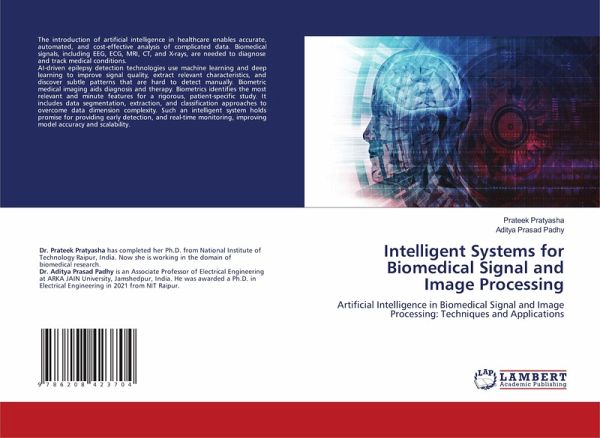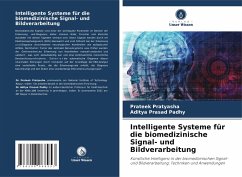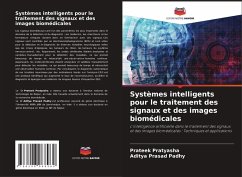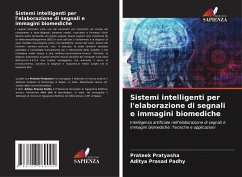
Intelligent Systems for Biomedical Signal and Image Processing
Artificial Intelligence in Biomedical Signal and Image Processing: Techniques and Applications
Versandkostenfrei!
Versandfertig in 6-10 Tagen
29,99 €
inkl. MwSt.

PAYBACK Punkte
15 °P sammeln!
The introduction of artificial intelligence in healthcare enables accurate, automated, and cost-effective analysis of complicated data. Biomedical signals, including EEG, ECG, MRI, CT, and X-rays, are needed to diagnose and track medical conditions.AI-driven epilepsy detection technologies use machine learning and deep learning to improve signal quality, extract relevant characteristics, and discover subtle patterns that are hard to detect manually. Biometric medical imaging aids diagnosis and therapy. Biometrics identifies the most relevant and minute features for a rigorous, patient-specific...
The introduction of artificial intelligence in healthcare enables accurate, automated, and cost-effective analysis of complicated data. Biomedical signals, including EEG, ECG, MRI, CT, and X-rays, are needed to diagnose and track medical conditions.AI-driven epilepsy detection technologies use machine learning and deep learning to improve signal quality, extract relevant characteristics, and discover subtle patterns that are hard to detect manually. Biometric medical imaging aids diagnosis and therapy. Biometrics identifies the most relevant and minute features for a rigorous, patient-specific study. It includes data segmentation, extraction, and classification approaches to overcome data dimension complexity. Such an intelligent system holds promise for providing early detection, and real-time monitoring, improving model accuracy and scalability.












